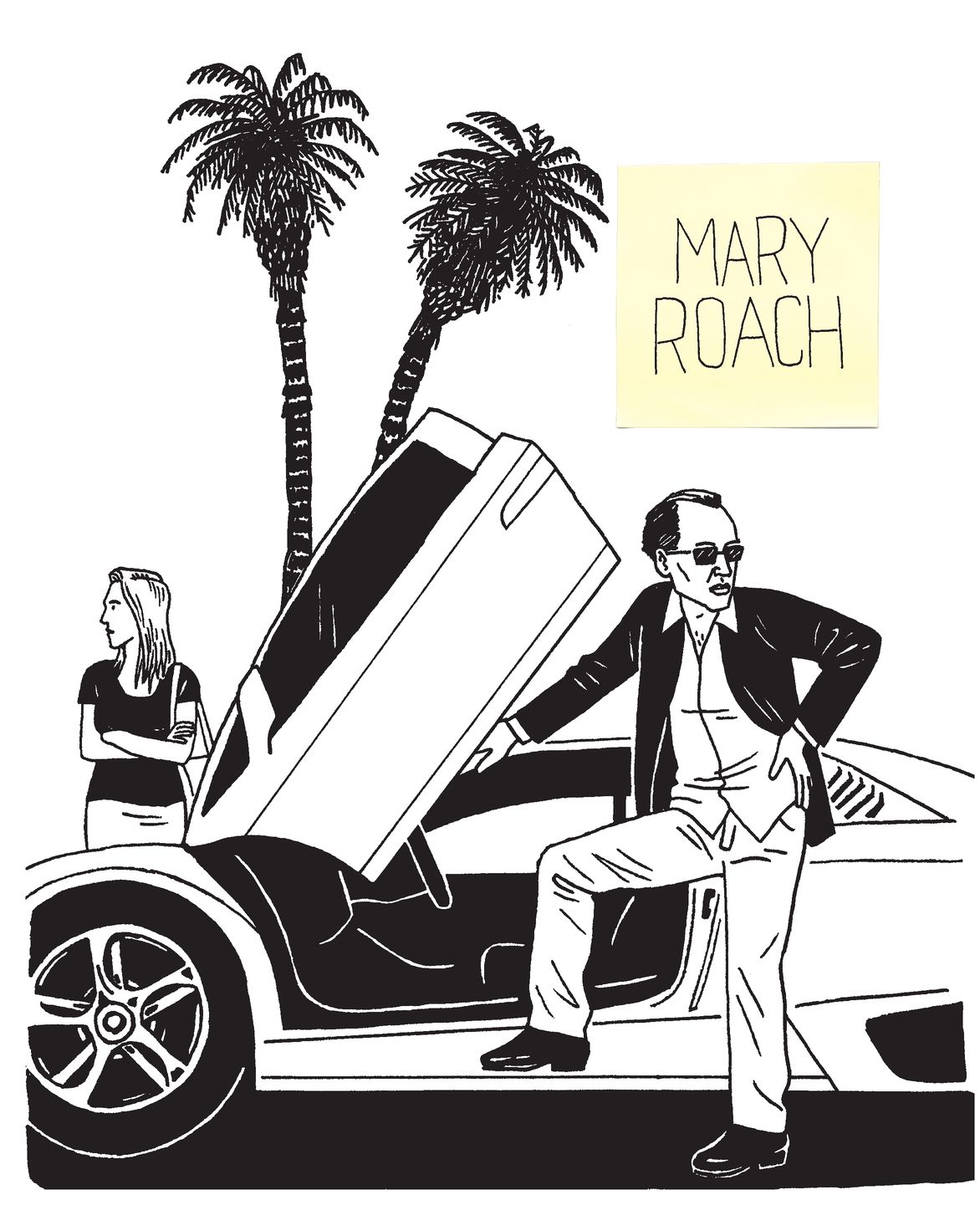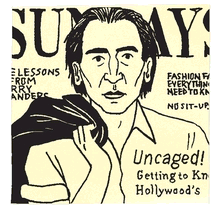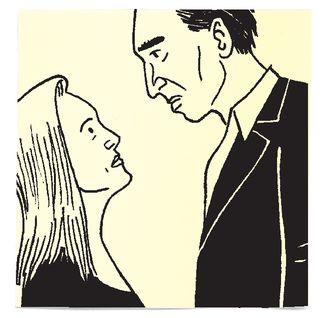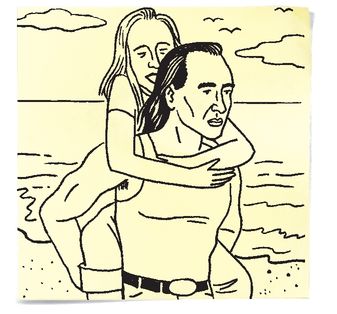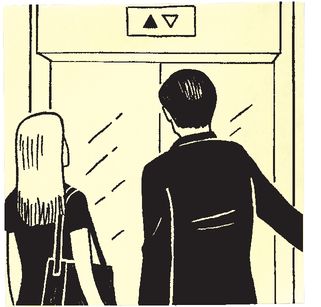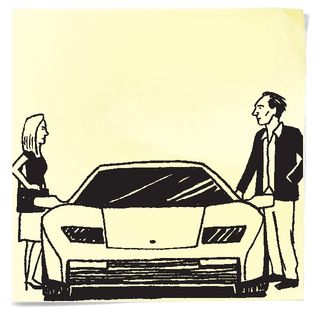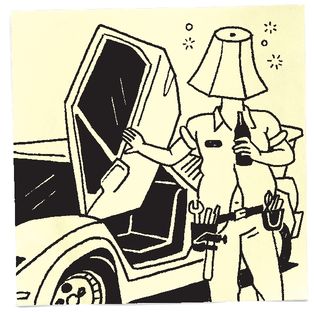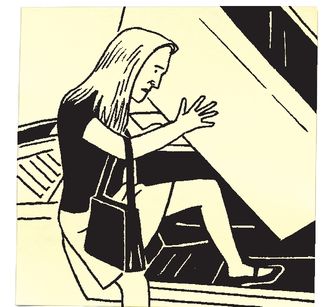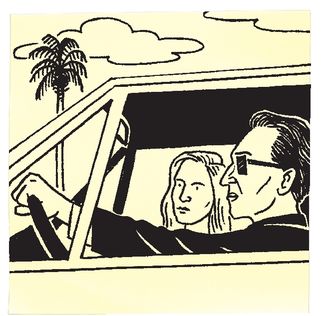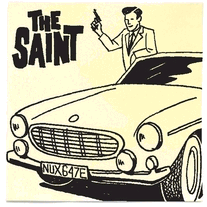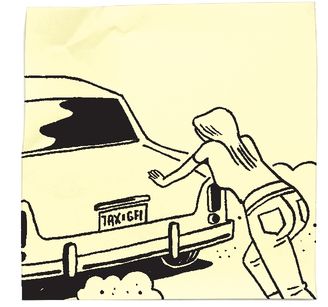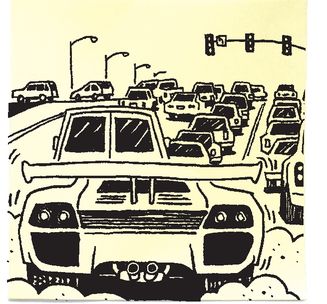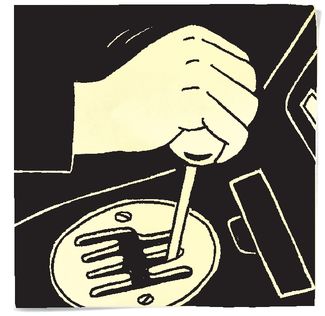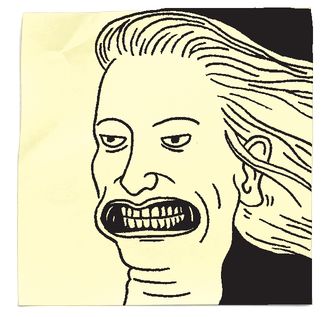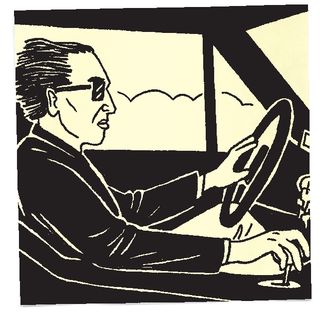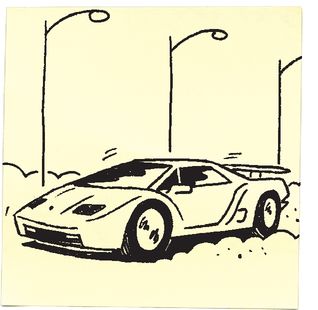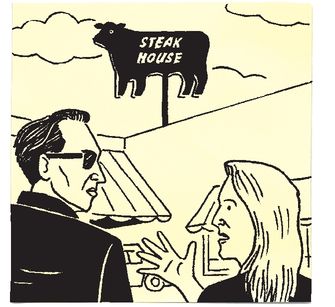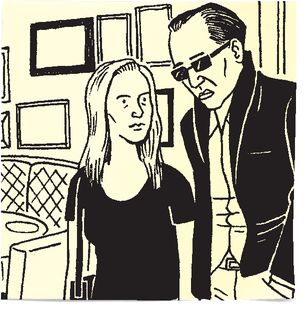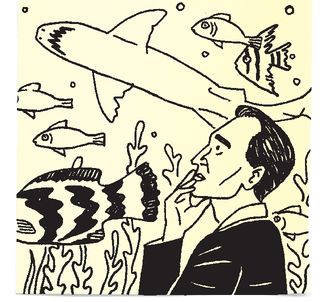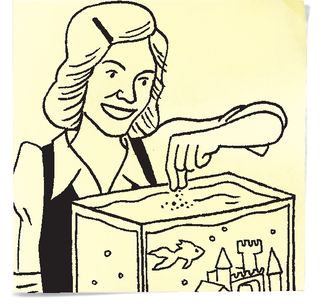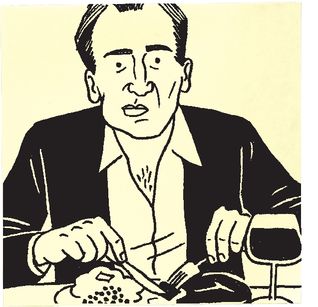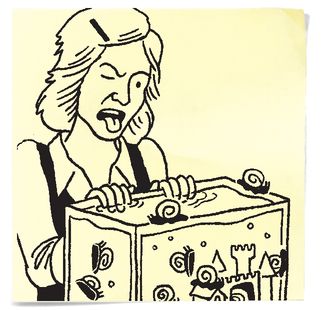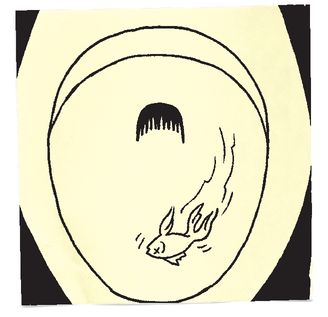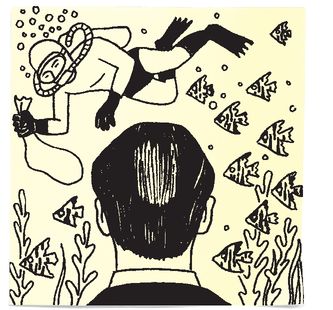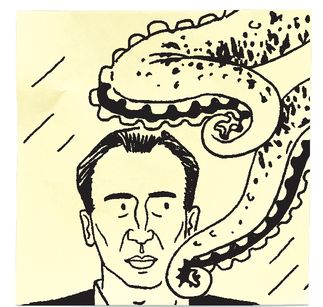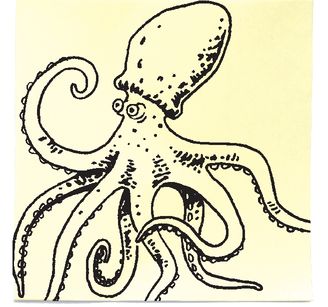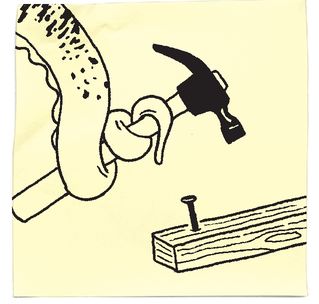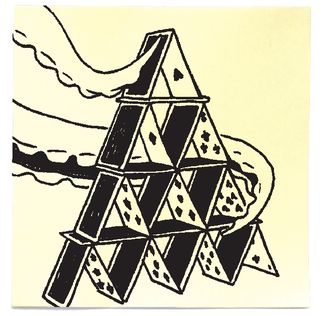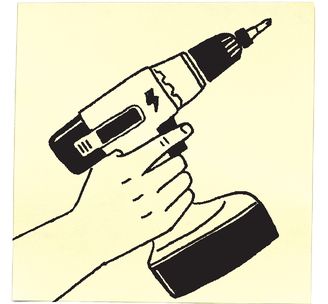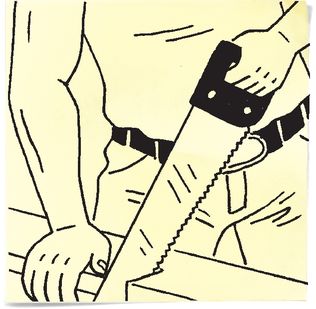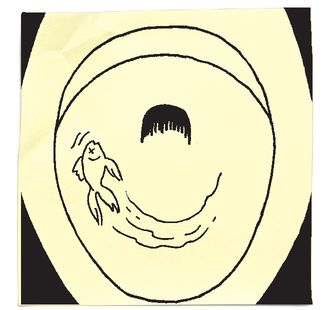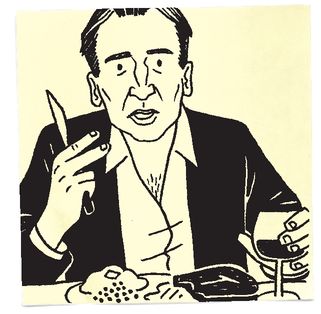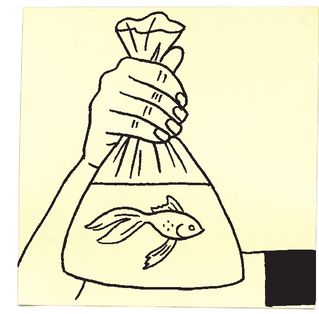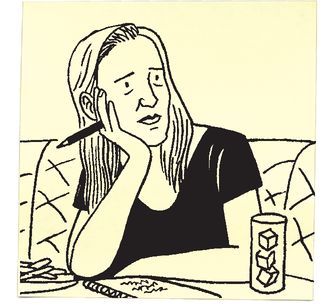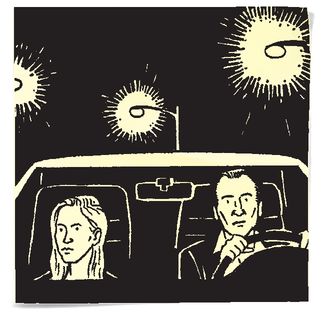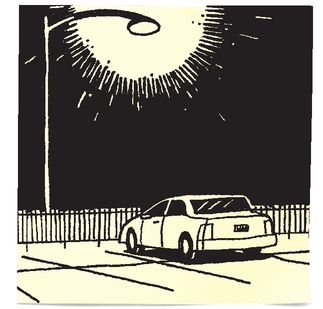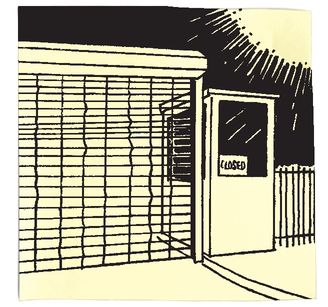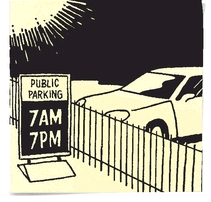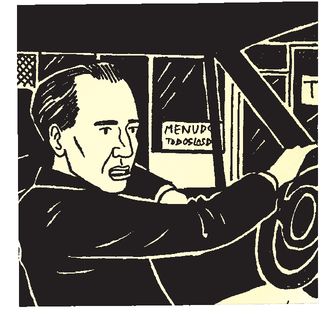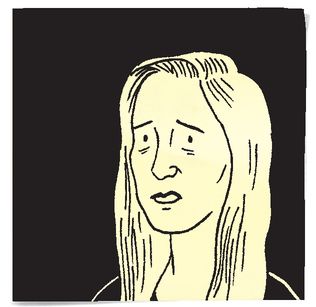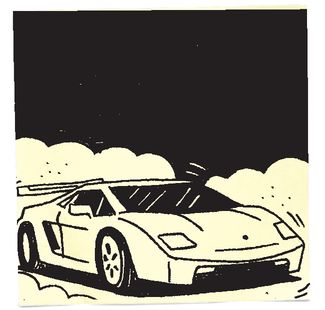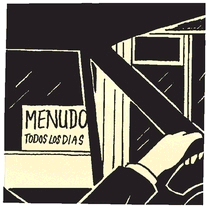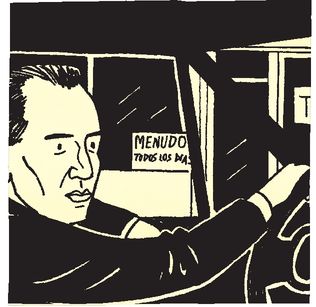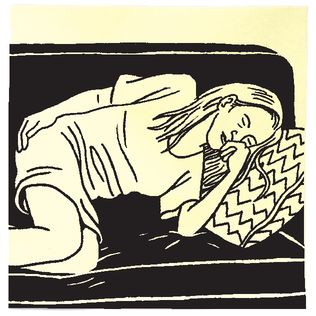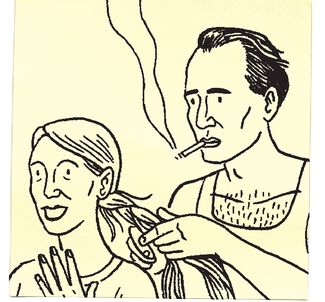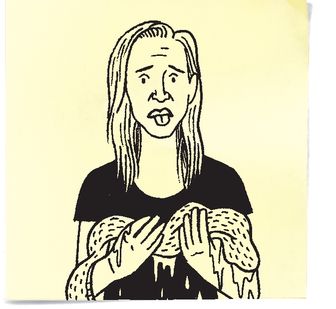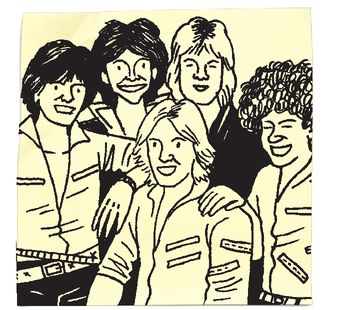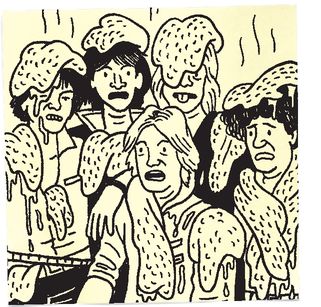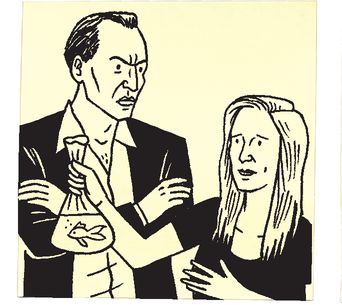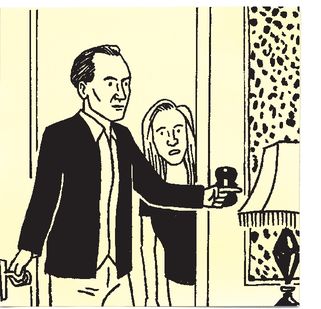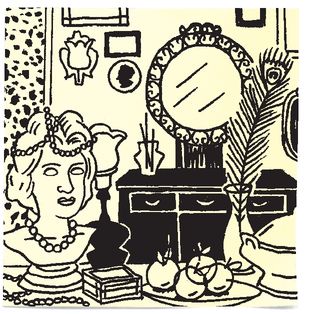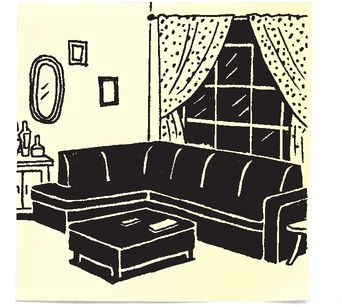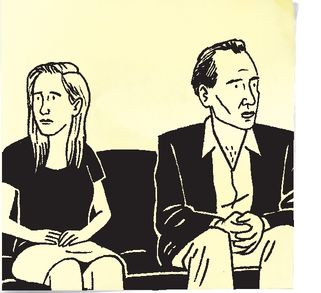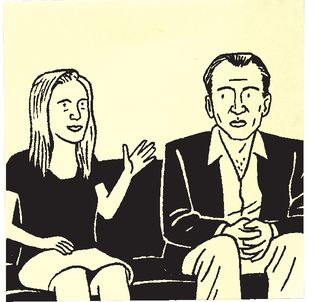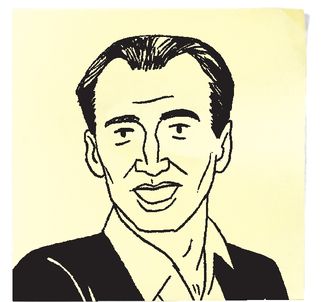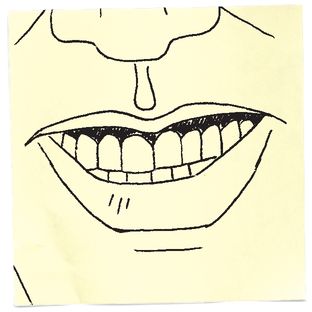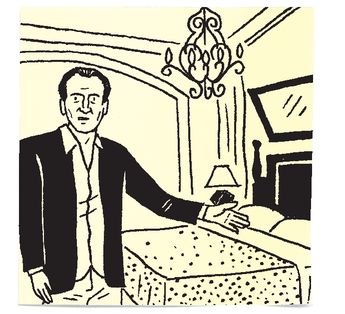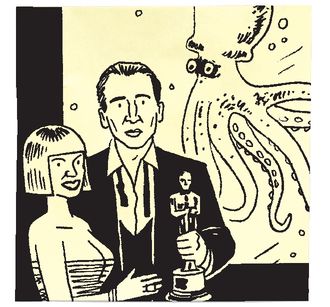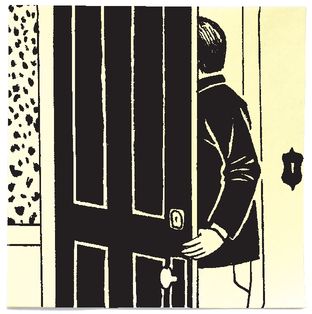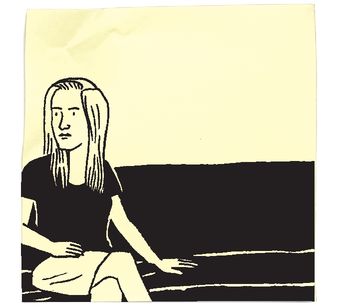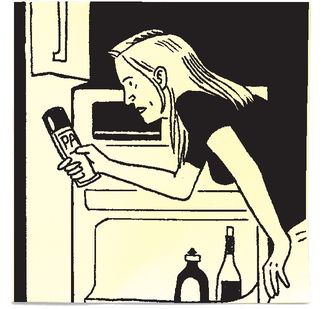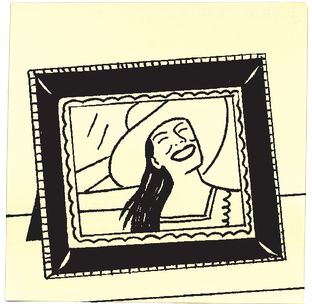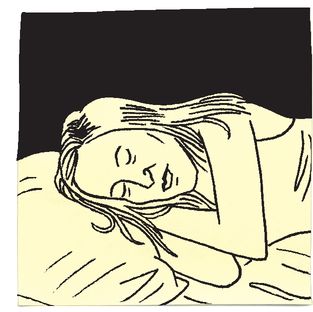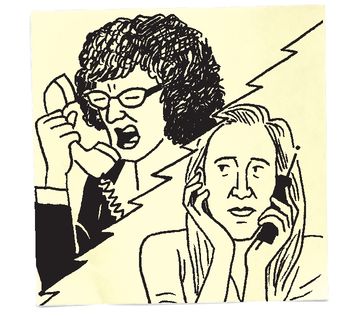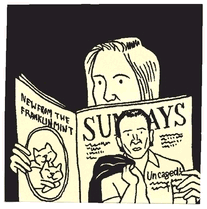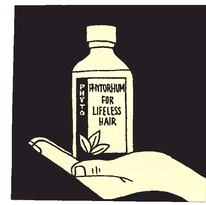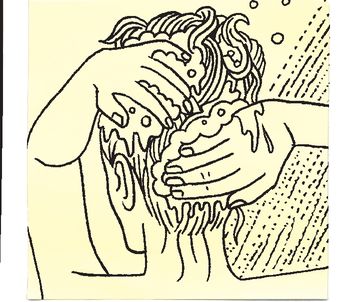How to Not Have Sex with Nicolas Cage
by Mary Roach
Many years ago, I had a brief, ill-fitting career writing celebrity profiles.
I worked for one of those skinny newsprint magazines that is stuck inside the Sunday paper and consists mainly of ads for collectible dolls and items from the Franklin Mint.
One of my first interviews was with Nicolas Cage.
I met Mr. Cage in the hallway outside his apartment, on the top floor of an old municipal building in downtown Los Angeles.
He was taller than I had expected and less happy to see me.
I recall approaching my first few interviews with the idiotic expectation that the celebrity and I might have so much fun together that we’d become pals.
We didn’t go inside the apartment because Mr. Cage was hungry and wanted to go get something to eat.
We drove to dinner in a Lamborghini that he had parked downstairs.
This kind of car is unusual in that the doors open up, not out, as though the assembly line workers had come in drunk and installed trunk lids where the doors were meant to go.
The body of the car was low and awkward to get into, like that cramped metal pod that takes tourists to the top of the St. Louis Gateway Arch.
I told Mr. Cage that I drove a 1966 Volvo 122S. “Oh, the one in The Saint!” he said approvingly.
The guy in The Saint drove a snappy Volvo sports car with fins.
“No, not that one.” My car was a sedan. It needed a running start to make it up a moderate hill.
There was traffic. The Lamborghini sounded like it was in the wrong gear.
“It’s like a pit bull on a leash,” said Mr. Cage. “It just wants to go.”
Finally a few car lengths opened up in front of us, and Mr. Cage shifted gears.
“We’re pulling g’s here!” he yelled. My stomach wrapped around my spine.
For the first time since we’d met, Mr. Cage seemed happy. Though without actually smiling.
Soon the car slowed again. Mr. Cage needed the kind of city streets that exist only in car commercials, with no one else on them.
After another mile or so, we turned in to the driveway of a steakhouse identifiable at some distance by a life-size plastic cow atop a sign pole.
I tried to get some banter going about the plastic cow, but it didn’t take.
We were seated right away. Mr. Cage walked o the booth with his head turtled low between his shoulders, to avoid notice. He said it had become a reflex.
At one point we got onto the topic of Mr. Cage’s new aquarium.
Because I was a terrible and self-absorbed interviewer, I cut him off and began talking p about the aquarium I’d kept in junior high.
Mr. Cage ate his T-bone steak and listened politely.
“There was a snail infestation,” I said. “Little ones, and tons of their eggs—all over the glass. After a while I couldn’t stand it.”
“I flushed the fish down the toilet.”
Mr. Cage’s aquarium was larger than mine had been, and there was a person who helped with it, presumably taking care of things like snails.
One of the creatures in it was an octopus. “They’re really smart,” he said.
“If octopuses got along with each other, which they don’t, they would rule the ocean.”
“They have all those appendages and they can build things.”
I regret now that I did not ask what octopuses build.
Instead I asked him if he could build things. I actually said: “Do you own any power tools?”
Mr. Cage said that he owned a saw. “For making things with my son. But it’s a handsaw.”
Then he said, “You flushed your fish down the toilet?” I confirmed this fact.
“Sorry. Who am I to judge?” I thought that was the end of it, but it wasn’t. “It isn’t the best thing to do with your animals, is it?”
“I mean, you could have returned them to the pet store, probably.”
It was seeming like we weren’t going to become friends.
We drove back to the parking lot where I’d left my rental car.
It was easy to find because it was the only one left in the lot.
This was because the lot had closed at 7:00 p.m. A large metal gate had been rolled across the driveway.
I recalled that Mr. Cage had asked me when we pulled away whether this was a late-night lot, and that I had, God knows why, answered yes. He didn’t bring this up.
“OK. Well. Do you want to stay at my apartment ?”
I vividly recall this moment.
The Lamborghini was idling, though nothing about the sound it was making suggested idleness.
Across the street was a sign for a restaurant that featured menudo.
I tried to remember which organ menudo was, at the same time as I tried to grasp the implications of Mr. Cage’s offer.
Brain?
Stomach?
Will I sleep on the couch?
Will we stay up late talking?
Stomach lining!
Plus it’s a Latino pop band.
How interesting to name a band after a cow’s stomach lining.
Are Nicolas Cage and I going to sleep together?
This seemed unlikely, what with the fish murders and the utter absence of flirting or any indication of interest on his part.
Mr. Cage let me into the apartment. The walls Is were painted mauve with panels of leopard print.
I had seen the same unusual combination on the exterior of an antique shop in San Francisco, on Guerrero Street, and wondered if that was where he’d gotten the idea for his decor.
The couch was dark green leather and large, the kind that turns corners.
There was some awkwardness.
“Where do you want me to sleep?” I said.
He smiled. He seemed to find this question funny
I think it was the first time that evening that I had seen his teeth.
He pointed to the bedroom. “I want you to sleep in here. This is where I want you to sleep.”
Then he walked back to the front door. He was going to his house in the hills, the house he shared with Patricia Arquette and the smart octopus.
It hadn’t occurred to me that a person would have two places to live in one city. “Make yourself at home,” he said, and left.
It was clear Mr. Cage didn’t spend much time in the apartment.
The refrigerator was empty except for a bottle of Chalk Hill chardonnay, some Hershey’s syrup, and a spray can of Pam.
On a shelf was a decorative frame that still contained the picture it came with, a woman in a large-brimmed hat, laughing about something.
I got into Nicolas Cage’s bed and called a bunch of girlfriends and said, “Guess where I am!”
Then I went to sleep.
I later found out that Mr. Cage’s publicist was angry that I had mentioned the sleepover in the piece I wrote.
This seemed odd, because I thought it showed Mr. Cage to be a generous person.
And while I did snoop around, I had not mentioned anything even remotely embarrassing, like the shampoo in the bathroom, which was called Phytorhum for Lifeless Hair.
For all I knew that was Patricia Arquette’s shampoo, or the shampoo that belonged to the last stupid reporter who missed her flight out because her car was locked in the parking lot.
